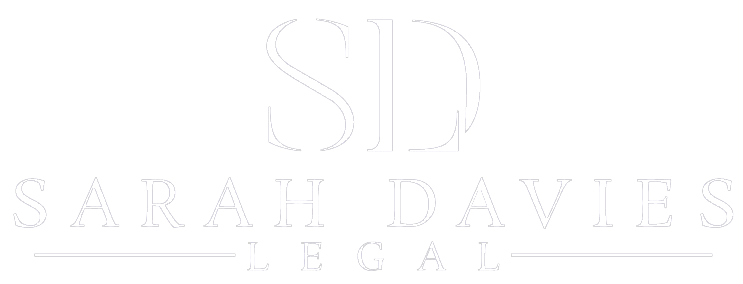Being involved in litigation is both emotionally and financially draining. It can be particularly stressful where it involves issues that are close to you and which involve your livelihood.
I’ve found that the biggest concerns potential clients have about litigation are that its unpredictable, costly and time-consuming. These are all legitimate concerns, but of course, they need to be balanced against the benefit that could be derived from the litigation.
The big problem is trying to make a sound decision when many of the matters that need to be considered are obscure or unknown. When working with clients, my objective at the outset is to provide as much information as possible to inform the Go/No-Go decision.
Unpredictable
Anybody contemplating commencing litigation needs to be emotionally and financially prepared for the fact that they could be unsuccessful in the litigation and incur significant costs in the process. They also need to be prepared for the possibility that even if they are successful, it will take much longer than anticipated or cost more than they bargained for.
Even good cases can sometimes go bad. It is good to keep in mind the following quote from the New South Wales Court of Appeal:
“…it is often impossible to predict the outcome of litigation with a high degree of confidence. Disagreements on the law occur even in the High Court. An apparently strong case can be lost if evidence is not accepted, and it is often difficult to forecast how a witness will act in the witness-box. Many steps in the curial process involve value judgments, discretionary decisions and other subjective determinations which are inherently unpredictable. Even well-organized, efficient courts cannot routinely produce quick decisions, and appeal further delay finality. Factors personal to a client and any inequality between the client and other parties to the dispute are also potentially material. Litigation is highly stressful for most people and notoriously expensive. An obligation on a litigant to pay costs of another party in addition to his or her own costs can be financially ruinous. Further, time spent by parties and witnesses in connection with litigation cannot be devoted to other productive activities. Consideration of a range of competing factors such as these can reasonably lead rational people to different conclusions concerning the best course to follow.”
Supreme Court of New South Wales Court of Appeal, Studer v Boettcher [2000] NSWCA 263
My job is to assist my clients to make wise decisions in the face of this uncertainty. Whether or not the litigation is worthwhile depends on:
- an assessment of the risk involved in prosecuting the case (i.e. are there good prospects of winning)
- the amount that could be recovered (i.e. is the amount significant enough to warrant the time and effort that will be put into the action)
- whether the other party has sufficient assets to pay the judgment debt
- what other options there are to resolve the dispute, and
- how much time and money will be required to prosecute the litigation.
These issues need to be considered early in the decision-making process and revisited often during the litigation. Good planning around these issues can make the process and the outcome more predictable.
Costly
The costs associated with an action depend, to a large extent, on the complexity of the issues involved, the number of documents that need to be considered, and the amount of evidence that needs to be obtained to prove the case. Sometimes these issues are not static, but evolve as documents are obtained from other parties and both lay and expert evidence is gathered.
The cost of litigation is also influenced, to some extent, by the attitude taken by the party that is being sued. If they admit they are liable (and only argue about the appropriate amount of the damages), then the costs can be significantly reduced.
Sometimes the other party insists on running the litigation in a way that causes additional expense to be incurred. The cost will be increased if it is necessary to apply to the court to force the other side to comply with the steps in the litigation. Parties sometimes try to wear down the other side by applying to the court frequently for orders relating to the preparation of the case.
In assessing the likely costs of the litigation, it’s therefore a good idea to anticipate a range of scenarios, without being overly optimistic or pessimistic about the way the litigation will unfold. The object is to come up with a realistic range of costs that can assist in the Go/No-Go decision.
Time-consuming
No one should underestimate the amount of time they and their business will have to devote to the litigation. Your legal team will assist you with running the case, but ultimately you will be responsible for finding documents and business records, reviewing material from the other side and providing instructions. Depending on the nature of the case, this can be a big commitment.
Litigation is, by its nature, backward looking, and many people find it frustrating to be forced to repeatedly revisit past events and documents and subject them to detailed forensic examination. So not only is it time-consuming, but that time will be spent doing something that is tedious!
Once litigation is commenced, there is a limit to the amount of control the parties have over the action. The speed with which the action progresses will depend upon how quickly other parties (such as barristers, experts and the other side) deal with matters that are their responsibility, and the availability of a judge to hear the matter.
It can be difficult to withdraw from litigation. Sometimes it is possible to negotiate with the other side to discontinue the proceedings against them on the basis that each party will walk away and bear their own costs. However, you should be aware that if you decide to discontinue the action, legally the other side is entitled to look to you for payment of the legal costs. For that reason, it would be inadvisable to commence litigation unless you are certain you have the resources to see it to a conclusion.
Let me know if I can help
Anyone considering litigation should think carefully about their personal circumstances and gather as much information as they can about their prospects of success and the amount of time and money they will need to devote to the litigation before deciding whether to proceed.
I work with my clients to ensure they know:
- the prospects of success in the litigation – are they likely to win
- the amount they might recover in damages – is it worth the effort
- whether the other party will be able to pay the damages – there is no point proceeding against an impecunious party with no insurance
- what the likely costs of the litigation will be, and
- how long the process will take.
If you have dispute resolution or litigation needs and you think you’d like to work with me, then please get in contact for a no-obligation consultation.
Sarah Davies
Director
Sarah Davies Legal
Accredited Specialist – Commercial Litigation
This article is produced as general information in summary for clients and should not be relied upon as a substitute for detailed legal advice or as a basis for formulating business or other decisions. Formal legal advice should be sought in relation to particular matters. Sarah Davies Legal Pty Ltd asserts copyright over the contents of this document.




